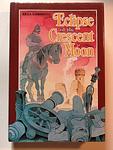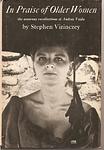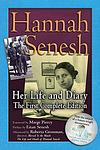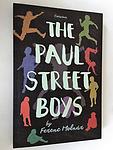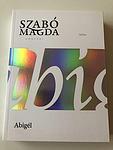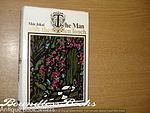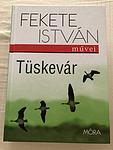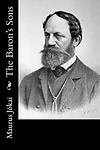The Greatest "Hungary" Books of All Time
Click to learn how this list is calculated.
This list represents a comprehensive and trusted collection of the greatest books. Developed through a specialized algorithm, it brings together 284 'best of' book lists to form a definitive guide to the world's most acclaimed books. For those interested in how these books are chosen, additional details can be found on the rankings page.
Genres
Countries
Date Range
Reading Statistics
Click the button below to see how many of these books you've read!
Download
If you're interested in downloading this list as a CSV file for use in a spreadsheet application, you can easily do so by clicking the button below. Please note that to ensure a manageable file size and faster download, the CSV will include details for only the first 500 books.
Download-
1. The Radetzky March by Joseph Roth
"The Radetzky March" is a historical novel that explores the decline and fall of the Austro-Hungarian Empire through the experiences of the Trotta family, across three generations. The narrative begins with Lieutenant Trotta, who saves the life of the Emperor during the Battle of Solferino, and follows his descendants as they navigate the complexities of life in the empire. The novel delves into themes of duty, honor, and the inevitability of change, painting a vivid picture of a society in decline.
-
2. Fateless by Imre Kertész
"Fateless" is a harrowing account of a Hungarian Jewish boy's experiences in Nazi concentration camps during World War II. The protagonist is sent to Auschwitz, then Buchenwald, and finally to a factory in Zeitz, enduring brutal conditions and witnessing unimaginable horrors. Despite his experiences, he maintains a detached, almost indifferent perspective, focusing on the mundane aspects of life in the camps, which further highlights the absurdity and horror of the situation. The novel explores themes of identity, survival, and the arbitrary nature of fate.
-
3. Embers by Sandor Marai
"Embers" is a novel about two old friends who reunite after being apart for 41 years. The story takes place in a secluded castle in the Carpathian Mountains, where the two men confront each other about a long-kept secret that has kept them apart. The narrative delves into themes of friendship, love, loyalty, and betrayal, while exploring the intricate dynamics of human relationships. The novel is a poignant examination of the nature of time and memory, and the ways in which they can shape and define our lives.
-
4. Danube by Claudio Magris
This literary work is a rich tapestry that combines travelogue, history, and cultural analysis, following the journey of the river Danube from its sources in the heart of Europe to its delta at the Black Sea. As the narrative meanders through various countries, it delves into the complex history and diversity of the regions along the riverbanks, reflecting on the interplay of different cultures, languages, and peoples. The book is a contemplative exploration of the European spirit, examining the river as both a physical and metaphorical conduit through which ideas and influences have flowed, shaping the continent's past and present.
-
5. Journey by Moonlight by Antal Szerb
"Journey by Moonlight" tells the story of a newlywed Hungarian couple, Mihály and Erzsi, who honeymoon in Italy. Mihály, however, is haunted by his past and becomes increasingly obsessed with his adolescent years, his old friends, and a mysterious brother and sister. This results in him abandoning Erzsi in order to embark on a strange and dark journey of self-discovery. The novel explores themes of nostalgia, love, and the struggle between personal desires and societal expectations.
-
6. Eclipse of the Crescent Moon by Géza Gárdonyi
"Eclipse of the Crescent Moon" is a historical novel set in the 16th century, during the time of the Ottoman Empire's siege on the Hungarian fortress of Eger. The story follows a brave young boy named Gergely, who grows up to be a heroic soldier defending his homeland. The tale is filled with romance, adventure, and provides a detailed depiction of medieval life, warfare, and the heroic resistance of the Hungarian people against the invading Ottoman forces.
-
7. A Time Of Gifts by Patrick Leigh Fermor
The book is a vivid memoir that chronicles the adventures of a young man as he embarks on a remarkable journey on foot across Europe in the 1930s. Starting from the Hook of Holland, he traverses through landscapes and cities, encountering a diverse tapestry of cultures, languages, and historical remnants. Along the way, he is welcomed by a variety of individuals, from aristocrats to peasants, who enrich his experience with their stories and hospitality. His travels provide not only a physical journey through the continent but also a journey through time, as he reflects on the complexities of Europe's past and the ominous shadows cast by the approaching Second World War.
-
8. Édes Anna by Dezső Kosztolányi
"Édes Anna" is a novel that revolves around the life of a young servant girl, Anna, who works for a bourgeois family in early 20th century Hungary. The narrative explores Anna's experiences of exploitation, abuse, and societal oppression. As she navigates her way through life, her innocence and naivety are gradually eroded, leading her to commit an act of violent rebellion. The book is a potent critique of class and gender inequalities of the time.
-
9. Celestial Harmonies by Peter Esterhazy
"Celestial Harmonies" is a historical novel that tells the story of the aristocratic Esterházy family, tracing their lineage from the late Middle Ages to the present day. The narrative is divided into two parts, with the first part featuring a series of vignettes about the family's ancestors, while the second part focuses on the experiences of the narrator's father under the Communist regime in Hungary. The novel is characterized by its intricate structure, complex themes, and lush, poetic language, offering a rich exploration of Hungarian history, family dynamics, and the human condition.
-
10. Garden, Ashes by Danilo Kiš
"Garden, Ashes" is a semi-autobiographical novel set during World War II, tracing the experiences of a Jewish boy and his eccentric father in Hungary. The narrative weaves between the boy's vivid imagination and the harsh realities of war, as he grapples with his father's unusual behavior and the increasing threat of the Holocaust. The book is a poignant exploration of childhood, family, and the impact of war on ordinary lives.
-
11. The Case Worker by György Konrád
"The Case Worker" is a novel that follows the life of a young, disillusioned social worker in Hungary who is struggling with the grim realities of his job. He is constantly faced with the harsh and desperate situations of his clients, which include the poor, the mentally ill, and the elderly. As he tries to help them, he becomes increasingly aware of the bureaucratic and social systems that often hinder rather than aid these vulnerable individuals. This leads him to question the effectiveness of his role and the larger societal structures in place.
-
12. The Door by Szabó, Magda
"The Door" by Magda Szabo is a novel about the relationship between two women, one of whom is a writer and the other is her housekeeper. The story explores themes of class, power, and the complexities of human relationships. As the two women become increasingly intertwined, their relationship becomes more and more complicated, leading to unexpected consequences for both of them. The novel is a powerful exploration of the human condition, and a poignant reminder of the importance of understanding and empathy in our interactions with others.
-
13. In Praise Of Older Women by Stephen Vizinczey
The book is a candid and provocative exploration of the romantic and sexual relationships of a young man, particularly with older, more experienced women. Through a series of intimate encounters and personal reflections, the protagonist embarks on a journey of emotional and sensual education. Set against the backdrop of mid-20th century Europe, the narrative delves into themes of love, passion, and the complexity of human connections, challenging societal norms and offering a fresh perspective on the dynamics between the sexes and the transformative power of relationships.
-
14. Epepe by Ferenc Karinthy
The book revolves around a linguist who finds himself inexplicably trapped in a nightmarish city where he cannot understand the language or communicate with the inhabitants. Despite his expertise in languages, the protagonist's skills are rendered useless in this alien environment, leading to a series of Kafkaesque encounters as he desperately tries to make sense of his surroundings and find a way back home. His isolation is compounded by the city's indifferent bureaucracy and the strange, often absurd, customs of its citizens, turning his ordeal into an existential struggle for identity and understanding in the face of an incomprehensible world.
-
15. Csárdás by Diane Pearson
This novel sweeps readers into the heart of early 20th century Hungary, tracing the life of a young woman from her sheltered upbringing in a noble family through the tumultuous events of World War I and its aftermath. Set against the backdrop of the Austro-Hungarian Empire's decline, the story explores themes of love, loss, and the search for identity amidst societal upheaval. The protagonist's journey from the grandeur of aristocratic life to the challenges of a world changed by war offers a deeply personal look at the impacts of history on individual lives, all while capturing the enduring spirit of the Hungarian people through its evocative depiction of their culture and traditions.
-
16. Six Studies In Communism by Arthur Koestler, Richard Crossman
This book is a compilation of six essays that delve into the ideological and practical facets of communism. Each study examines different aspects of communist theory and practice, from its origins and evolution to its implementation in various countries. The authors critically analyze the successes and failures of communist systems, exploring the impact on societies that have adopted these principles. The essays also consider the psychological and sociological effects of living under communist regimes, providing a multifaceted perspective on one of the most influential political ideologies of the 20th century.
-
17. Hannah Senesh by Hannah Senesh
This book is a collection of the diaries, letters, and poems of a young Jewish woman who emigrated from Hungary to Palestine in the 1930s, driven by her Zionist beliefs. She joined the Haganah and later volunteered for a daring military operation to parachute into Nazi-occupied Europe during World War II, with the aim of aiding Allied forces and rescuing Hungarian Jews from the Holocaust. Her writings reflect her courage, literary talent, and the depth of her commitment to her cause. Tragically captured, tortured, and eventually executed by the Nazis, she became an enduring symbol of bravery and sacrifice in the face of tyranny.
-
18. The Paul Street Boys by Ferenc Molnár
The book is a classic coming-of-age tale set in Budapest, Hungary, at the turn of the 20th century. It follows a group of adolescent boys who are engaged in a territorial battle over a vacant lot they call the "grund," which they use as their playground. The story highlights themes of loyalty, camaraderie, and the struggles of youth as the boys defend their cherished space against a rival group. The narrative focuses on the experiences of the protagonist, who is faced with difficult moral choices and the harsh realities of growing up, as the boys' conflict mirrors the larger social and economic tensions of their time.
-
19. Abigél by Szabó, Magda
Set against the backdrop of World War II in Hungary, the novel follows a young girl sent to a strict boarding school in the countryside by her father, a high-ranking general who fears for her safety amidst the war. Struggling to fit in and feeling abandoned, she eventually discovers the school harbors deep secrets, including the mysterious "Abigél," a statue that seems to be at the center of a clandestine operation protecting those persecuted by the war. As the protagonist navigates the complexities of adolescence, authority, and the harsh realities of her time, she learns valuable lessons about trust, loyalty, and the power of community in the face of adversity.
-
20. The Man With The Golden Touch by Mór Jókai
The novel revolves around the life of a man who, after a series of fortunate events, discovers a secret method to turn lead into gold, leading to immense wealth and the title of 'The Man with the Golden Touch'. However, his newfound riches bring him more misery than happiness, as he grapples with the corrupting influence of money, the envy and greed of those around him, and the realization that true value lies not in material wealth but in love and human relationships. His journey is a cautionary tale about the moral and emotional consequences of unchecked avarice and the pursuit of wealth at the expense of more meaningful aspects of life.
-
21. Tüskevár by István Fekete
The novel is a coming-of-age story that follows two city boys who spend their summer in the Hungarian countryside, near a place called Tüskevár, to learn about nature, survival, and self-reliance. Under the guidance of an old woodsman, they encounter various adventures and challenges, from learning to fish and hunt to dealing with the harsh realities of the natural world. Throughout their stay, they gain a deep appreciation for the environment and experience personal growth, ultimately leaving behind their naïve views and becoming more mature and responsible individuals.
-
22. The Baron's Sons by Mór Jókai
"The Baron's Sons" is a historical novel set in the backdrop of the Hungarian Revolution of 1848, which follows the diverging paths and ideologies of three aristocratic brothers. As the nation struggles for independence from Habsburg rule, the brothers find themselves torn between loyalty to their noble heritage and the revolutionary cause. Their personal conflicts and romances intertwine with the larger political turmoil, painting a vivid picture of a family caught in the crossfire of rebellion, loyalty, and national identity. The novel explores themes of honor, betrayal, and the complexities of patriotism during a pivotal moment in Hungarian history.
-
23. Indul A Bakterház by Sándor Rideg
"Indul A Bakterház" is a Hungarian novel that follows the life of a young boy growing up in a rural village during the interwar period. The narrative centers around the boy's experiences in a strict, yet comical, educational system and his interactions with a cast of eccentric characters, including his family members and schoolmates. Through a series of humorous and poignant episodes, the novel paints a vivid picture of village life, exploring themes of adolescence, tradition, and the universal journey of growing up amidst the challenges of poverty and societal change.
-
24. Be Faithful Unto Death by Zsigmond Móricz
The novel is a poignant coming-of-age story set in a Hungarian boarding school at the turn of the 20th century. It follows the life of a young boy from a poor family who earns a scholarship to attend the prestigious institution. His journey is marked by the struggle to fit in among wealthier peers, the harsh discipline of school authorities, and the challenges of adolescence. When a valuable violin goes missing, he is unjustly accused of theft, leading to a profound examination of morality, integrity, and the resilience of the human spirit in the face of injustice and hardship.
-
25. They Were Counted by Miklos Banffy
This novel, set in the twilight years of the Austro-Hungarian Empire, weaves a tale of aristocratic decadence, political intrigue, and personal downfall. It follows two cousins, navigating the treacherous waters of high society, politics, and love in Transylvania and Budapest. Through their eyes, the reader experiences the lavish balls, the rural estates, and the corridors of power, all set against the backdrop of an empire on the brink of collapse. The story masterfully portrays the complex interplay between personal ambitions, romantic entanglements, and the shifting sands of political alliances, capturing the essence of a bygone era with vivid detail and emotional depth.
Reading Statistics
Click the button below to see how many of these books you've read!
Download
If you're interested in downloading this list as a CSV file for use in a spreadsheet application, you can easily do so by clicking the button below. Please note that to ensure a manageable file size and faster download, the CSV will include details for only the first 500 books.
Download




